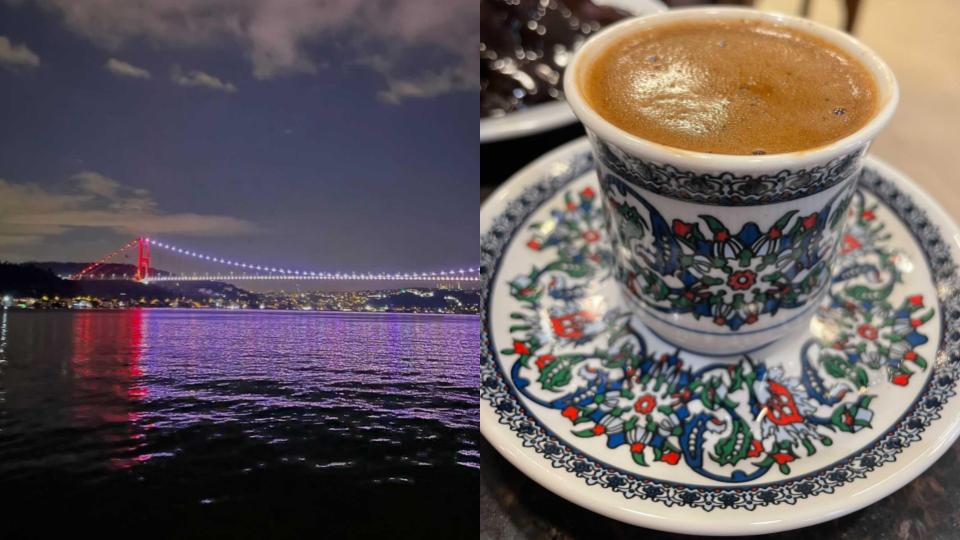As fall ends and everyone is leaving to go back home — whatever home means — I feel sad. Fall is beautiful at Stanford, and somehow I am already reminiscing about my fall days on campus even before they become distant memories. For some reason, I don’t want to go back to Istanbul for winter break, at least not yet. Last spring, I was filled with an inexplicable desire to go back, hug my younger brother and be in my mother’s arms like a young child. Now, I don’t feel that way. I have come to adjust and enjoy my life here so much that I don’t want to leave. As Governor’s Corner becomes my home, Istanbul becomes a memory far, far away, like a children’s tale you heard years ago and can’t make out the details of anymore.
When I meet people for the first time here, I hear the inevitable question: “Where is your accent from?” A sudden embarrassment captures me when I hear this question, as I realize that my accent makes me stand out, and I question whether an accent is something that should be disguised.
I am from Istanbul, Turkey. It is a city right between Europe and the Middle East. It’s a beautiful, wonderful city, full of surprises. It’s so different from here.
If I feel a sense of warmth in the person, I will go on to talk more about Istanbul, how old and how special it is. Perhaps I will tell the story of Justinian and Theodora, how a Roman emperor fell in love with a prostitute who would, later on, encourage him to defend Constantinople with a remarkable speech. A clever woman, Theodora was. Perhaps I will take my phone out and show the mosaics of Justinian and Theodora depicted on the walls of Hagia Sophia. I will once again marvel at the mosaics with you, as I do every time, as if I haven’t memorized these mosaics already.
Sometimes people have already met Turkish people here, so they will recognize my accent. They will ask me if I am from Turkey. I will say yes and encounter the smile of a person who just scored in the game of guessing accents. We do have quite a distinct accent. I will ask them who they have met here who is Turkish, and I will reply, Oh, yes, she is so lovely. I will wonder to myself if my accent will ever go away. Do I want it to go away? Should it go away?
At the start of the past quarter, I looked at the pictures of my younger brother smiling with his beautiful face and cried because he is growing old, just as I am. That baby face of his will change and become a memory in pictures soon. The heaviness of my decision to leave him and move to the other end of the world is what put me to tears. I would wipe them away and continue with my day as if this crying ritual is a normal act in my daily routine. Now, my brother’s picture is still my screensaver, but I adjusted to seeing this smile and not reacting to it. I don’t think about missing home anymore, because that’s all I can do. Things change, and we have to adapt. That’s how we survive.
On my last morning at Stanford, before I left for my flight, I was awake quite early and went outside to wander around the fields of GovCo with a pair of flip-flops. As the ice-cold air of the Bay Area mornings gave me an embrace, I walked around without a destination in mind. The sky was as light as the color of a glacier, and tall, strong trees surrounded me. Wandering around, I realized how much this place became my home; each corner of this field has a memory of mine attached to it.
Though I adapted to Stanford, my reactions to events in my daily life remind me that I am Middle Eastern at heart. When something goes differently than I expected, I think to myself, perhaps it wasn’t meant to be. I find myself unexpectedly spiritual at times, blaming destiny for events that go awry, and I religiously wear my necklace of Nazar, in the shape of a blue eye, with a questionable belief inside me that it, somehow, protects me. I have this belief inside me of fate, which I know doesn’t make sense. And I care too much about what others think, finding myself wondering what others think of me when I act in a certain way, which is a residue of growing up in a collectivist culture. It still surprises me how people call their professors by their first names, as I find it too informal to call people of such high status that way (though I am adjusting to it).
I landed in Istanbul a few days ago, and to my surprise, I don’t feel like a stranger in my hometown. It is my home, and it is where my heart will always belong to. But now, I understand what made me hesitant to go back home. Every time I am in Istanbul, I get attached to it once again, to my family and to this city of mysteries. Istanbul is like an old lover I simply can’t let go of. I am scared of feeling this attachment, in all of my being, as it makes letting go of Istanbul harder and harder each time as the date of my flight to San Francisco approaches. I still don’t know how to navigate life across two far parts of the earth, and I don’t know if I ever will.
